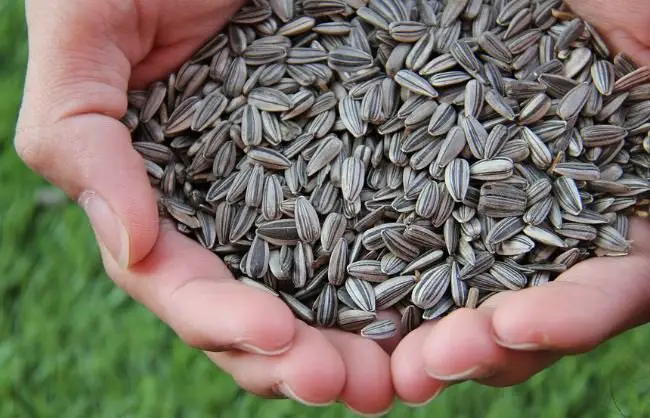Selenium is a trace mineral that supports the immune system and the thyroid gland, stimulating the synthesis of the hormones T3 and T4. Selenium is also a powerful antioxidant. It protects cells from free radicals, which are aggressive molecules that can destroy cells.
Selenium enters the body with food and is absorbed in the small intestine. Seafood, meat, eggs and wheat are rich in this trace element.
In pregnant women, normal selenium levels reduce the likelihood of fetal abnormalities.
After birth, selenium enters the baby’s body through breast milk. It strengthens the newborn’s immune system and supports thyroid function.
Causes of the deficiency
There are several causes of micronutrient deficiency in the body:
- Low levels in soil and food.
- Parenteral nutrition without supplementation of the element.
- Diseases of the gastrointestinal tract: liver, intestines.
- Taking statins, aminoglycazides and some other therapeutic drugs that reduce the content of selenium in the blood.
- Intoxication with arsenic, substances of organic origin, heavy metals.
- Increased consumption. Influenza, coronavirus, hepatitis C and other RNA-containing viruses use Se to generate their own proteins. Consumption of the element increases in patients with burns and those on hemodialysis.
- Special periods in life. Pregnant and lactating women and children need a large amount of the mineral.
Selenium Deficiency Symptoms
Lack of selenium in the body entails a number of painful conditions. These include:
- Thyroid diseases. Because of the deficiency of the mineral deteriorates the absorption of iodine, which often leads to serious iodine deficiency.
- Delayed physical and mental development in infants.
- Deterioration of the cardiovascular system.
- The development of the oxidative process. Badly displayed on the pigmented area of the retina.
- Weakening of soft tissue regeneration. Wounds take a long time to heal, inflammatory and purulent processes often appear.
- Decreased immunity.
- Increased tendency to develop inflammatory diseases.
- Diseases of the skin, hair and nails.
- Visual impairment.
- Depression.
- Male infertility.
Today, the risk of experiencing selenium deficiency is not that great because vegetable crops are grown in fertilized soil. But a small risk of experiencing a deficiency is still present. Those who live in endemic zones – places where the content of the chemical element in the soil is low – may encounter a problem. The risk group also includes the Kurts, the elderly, people with chronic diseases of the gastrointestinal tract. Vegetarians, especially those who adhere to fructorianism and raw food diet, can also face Se deficiency.
Excess Selenium
Selenium is toxic in high doses. Its excess may be due to uncontrolled use of dietary supplements.
High levels of selenium in the blood cause dermatitis, nausea, and diarrhea. Garlic breath may occur.
Symptoms and Causes of Excess
Consumption of more than 1 mg of selenium per day leads to a number of adverse effects. Signs of overabundance:
- Garlic breath and urine odor.
- Metallic taste.
- Nausea.
- Unstable emotional state.
- Rashes.
- Hair loss in some areas of the skin.
- Headaches.
- Diseases of the nails.
In some cases, exceeding the dosage of selenium in the blood provokes pneumonia, seizures, cardiovascular collapse. There are two causes of toxic exposure:
- Working in industrial production. Manufacturing drugs, paint and varnish products, glass, electronics, chemistry, ore mining, casting alloys.
- Self-prescribing. Uncontrolled drug taking is an action that rarely does any good.
To find out how much Se is in the blood, a serum or plasma test is performed. Toxicity levels are determined based on 24-hour urine tests. Depending on geographic location, the acceptable dose is 20-1000 mcg/L.
Table of Selenium-Rich Foods
| Food | Selenium Content per 3.5 ounces |
|---|---|
| Brazil nuts | 1917 mcg |
| Yellowfin tuna | 126 mcg |
| Halibut | 47 mcg |
| Sardines | 45 mcg |
| Turkey | 34 mcg |
| Chicken | 34 mcg |
| Oysters | 33 mcg |
| Salmon | 29 mcg |
| Crab | 27 mcg |
| Shrimp | 23 mcg |
| Beef | 20 mcg |
| Lamb | 20 mcg |
| Eggs | 21 mcg |
| Brown rice | 19 mcg |
| Sunflower seeds | 18 mcg |
| Chia seeds | 16 mcg |
| Mushrooms | 16 mcg |
| Spinach | 11 mcg |
| Avocado | 11 mcg |

About the Author
Reyus Mammadli is the author of this health blog since 2008. With a background in medical and biotechnical devices, he has over 15 years of experience working with medical literature and expert guidelines from WHO, CDC, Mayo Clinic, and others. His goal is to present clear, accurate health information for everyday readers — not as a substitute for medical advice.







